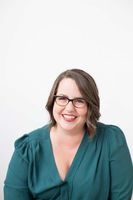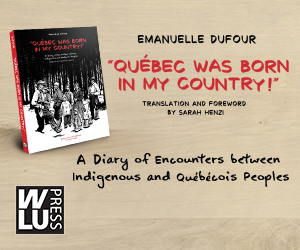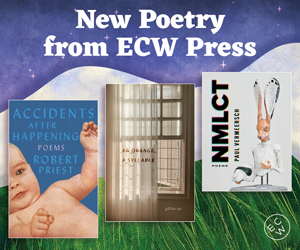Amanda Laird on Breaking Menstruation Stigma & Myth in Heavy Flow
Despite the fact that a billions of people experience, have experienced, or do experience mensuration, a normal biological process, it remains a subject shrouded in embarrassment, misinformation, and taboo. Enter Amanda Laird and her stigma-busting book Heavy Flow: Breaking the Curse of Menstruation (Dundurn Press), which asks the seemingly simple question: What do you know about your menstrual cycle?
Heavy Flow highlights the importance of periods as a barometer of health and wellness that is often ignored. She explores the misogynistic roots of fear and shame around periods and the incorrect and usually exclusively negative information people who menstruate are often taught. The book combines fascinating history, biological education, and sociological overview, with a guidebook to menstrual self-care. It's an incredible read for those who have experienced periods and those who haven't but are interested in health, history, and politics.
We're extremely excited to welcome Amanda to Open Book today to talk about Heavy Flow. She tells us about her podcast, to which the book is a companion piece; how she originally approached the book as a trained nutritionist but ending up expanding her scope; and her standing-ovation worthy goal: that "the next generation of menstruators to be free of shame and pain from the very beginning".
Open Book:
Tell us about your new book and how it came to be. What made you passionate about the subject matter you're exploring?
Amanda Laird:
Heavy Flow: Breaking the Curse of Menstruation is part feminist theory, part anatomy lesson. It covers everything about the menstrual cycle you didn’t learn in health class: why is it important beyond baby-making? Where did period shame come from? And most importantly, how can we have a better period?
The book is a companion to my podcast, The Heavy Flow Podcast. It’s a weekly show about periods, body literacy and wellness.
I’ve always been interested in reproductive health for as long as I can remember. In high school, I made my own cloth pads. In nutrition school, I learned about fertility awareness and that periods didn’t have to be a curse – which ignited my passion for sharing this information with the world.
OB:
Is there a question that is central to your book? And if so, is it the same question you were thinking about when you started writing or did it change during the writing process?
AL:
The central question is: how can you have a better period? Approaching this as a nutritionist, I assumed the answer would be “by changing your diet!” And yes, that will likely help. But a better period is one that’s free of pain and shame. We’ll all have better periods when we dismantle the systems that have ignored female bodies and the menstrual cycle in medical research, refuse to take “it’s normal” as an answer when we’re concerned about period pain, and we all have access to safe, sustainable menstrual products when we need them.
OB:
What was your research process like for this book? Did you encounter anything unexpected while you were researching?
Your CanLit News
Subscribe to Open Book’s newsletter to get local book events, literary content, writing tips, and more in your inbox
AL:
I checked out every single book about menstruation in the Toronto Public Library system, which actually isn’t all that many! Every interview I did for the podcast also informed the book in some way – a lot of my guests are quoted in the text.
I didn’t expect to find so many connections between menstrual shame and other social justice issues like gender, race, and class. I’m a holistic nutritionist – I never thought I would be writing about capitalism!
OB:
What do you need in order to write – in terms of space, food, rituals, writing instruments?
AL:
I’m a parent and I also have a day job, so most of my book was written in hour-long spurts. I got really good at writing wherever and whenever I could. As long as I’ve got a good pair of headphones, my 'Good Vibes' Spotify playlist and a crunchy snack nearby, I'm good to write.
OB:
What do you do if you're feeling discouraged during the writing process? Do you have a method of coping with the difficult points in your projects?
AL:
Feeling discouraged usually means I'm tired or burning out or just need a break. I also like to take literal pen to paper. I ask myself, "What is it I’m trying to say?" and then write out my answer on a piece of paper. The physical act of writing always helps to create fresh energy to unblock me.
OB:
What defines a great work of non-fiction, in your opinion? Tell us about one or two books you consider to be truly great books.
AL:
I love a non-fiction book that shifts my worldview and makes me consider something I had never thought of before. The best ones make me yell at the page while I’m reading!
I think Chris Bobel’s New Blood: Third-Wave Feminism and the Politics of Menstruation hits all those notes. It was a book that I came to just as I was beginning to connect the dots between menstruation and feminism in my own work. I could feel my world shifting as I read it. Each time a new question popped into my mind, it was addressed it in the text.
OB:
What are you working on now?
AL:
I’m working on launching an online course that will go deeper into some of the body literacy tools presented in Heavy Flow. I’m also starting to think about adapting the book to a younger audience meeting their menstruation for the first time. I’d love for the next generation of menstruators to be free of shame and pain from the very beginning!
________________________________
Amanda Laird is a feminist holistic nutritionist specializing in menstrual health and is the host of Heavy Flow — a weekly podcast dedicated to casual conversations about periods and other taboo health and wellness topics. She lives in Toronto.



